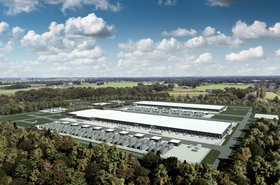Meta plans to spend billions of dollars more on servers and data centers as it continues to ramp up its infrastructure investments to support artificial intelligence (AI).
Shares in the company fell on concerns over the increased costs, which CEO Mark Zuckerberg argued were vital to become “the leading AI company in the world."
In an earnings call, the company CFO, Susan Li, said that "capital expenditures including principal payments on finance leases were $6.7 billion, driven by investments in servers, data centers, and network infrastructure," down from $7.09bn this time last year.
Meta said it now forecasts 2024 capex in the range of $35bn-$40bn, up from a February prediction of $30bn-$37bn. That would make it Meta's largest CapEx investment in its history.
"We expect CapEx will continue to increase next year as we invest aggressively to support our ambitious AI research and product development efforts," Li added.
"We should invest significantly more over the coming years to build even more advanced models and the largest scale AI services in the world," CEO Mark Zuckerberg added.
"As we're scaling CapEx and energy expenses for AI, we'll continue focusing on operating the rest of our company efficiently but - realistically - even with shifting many of our existing resources to focus on AI, we'll still grow our investment envelope meaningfully before we make much revenue from some of these new products."
He pointed to other efforts, such as Reels, Stories, and the transition to mobile, as multi-year projects that took time to prove profitable. "But building the leading AI will also be a larger undertaking than the other experiences we've added to our apps and this is likely going to take several years," he admitted.
"On the upside, once our new AI services reach scale, we have a strong track record of monetizing them effectively. There are several ways to build a massive business here, including scaling business messaging, introducing ads or paid content into AI interactions, and enabling people to pay to use bigger AI models and access more compute."
His comments were unable to convince a number of investors, with shares in the social media company dropping around 15 percent and wiping $200 billion off of its valuation.
The valuation decrease came despite earnings per share ($4.71) and revenue ($36.46bn) both beating Wall Street expectations. However, Meta forecast sales growth below expectations in the second quarter.
More in Investment / M&A
-

-

-

Discussion DCD>Connect Debates




